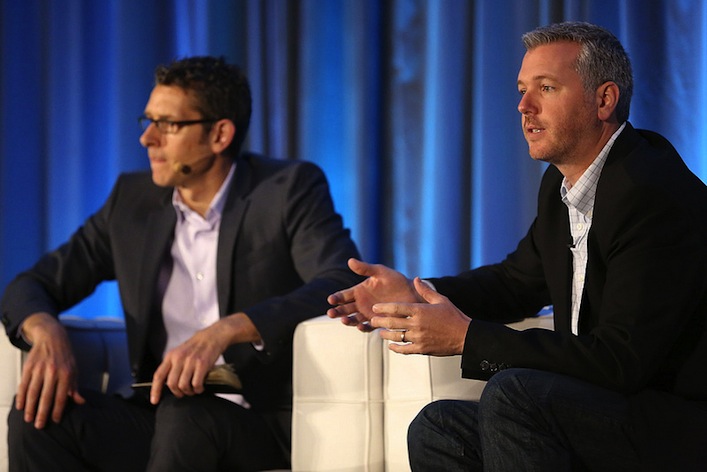PepsiCo does not plan on moving its systems public cloud. Yet.
[aditude-amp id="flyingcarpet" targeting='{"env":"staging","page_type":"article","post_id":581097,"post_type":"story","post_chan":"none","tags":null,"ai":false,"category":"none","all_categories":"cloud,","session":"D"}']Frank Edwards, the director of IT strategy at PepsiCo has been working on the “Exit Strategy Group” at the global food and beverage giant. The group looks at how to bring operating costs down and make PepsiCo’s backend as efficient as possible. And he doesn’t think the public cloud fits that mold.
“We haven’t seen that it’s compelling to be less expensive or to fit our risk profile,” said Edwards at the CloudBeat conference in Redwood Shores, Calif. “If you have a compelling case that will save us a million dollars, that’s not really compelling enough.”
AI Weekly
The must-read newsletter for AI and Big Data industry written by Khari Johnson, Kyle Wiggers, and Seth Colaner.
Included with VentureBeat Insider and VentureBeat VIP memberships.
2012 assembles the biggest names in the cloud’s evolving story to
uncover real cases of revolutionary adoption. Unlike other cloud
events, the customers themselves are front and center. Their
discussions with vendors and other experts give you rare insights into
what really works, who’s buying what, and where the industry is going.
CloudBeat takes place Nov. 28-29 in Redwood City, Calif. Register today!
PepsiCo takes in $65 billion in revenue a year.
In order to come to this conclusion, Edwards and his team used the Monte Carlo Simulation, which took over 40 billion different situations in which PepsiCo could save money through the public cloud, and found that it just didn’t make sense.
“I’d love to see more companies adopt this kind of mechanism when selling to large enterprise,” said Edwards. “It does seem like a lot of messages are geared toward the developer or SMBs [small to medium sized businesses].”
Edwards said that PepsiCo believes that it won’t last forever as a private cloud company, however.
“The public cloud is eventual, it’s not a question of if, it’s a question of when,” he said.
In order to prepare for that, the company has purposefully built its data centers near Amazon and other cloud providers so that it can physically hook up to them if need be.
[aditude-amp id="medium1" targeting='{"env":"staging","page_type":"article","post_id":581097,"post_type":"story","post_chan":"none","tags":null,"ai":false,"category":"none","all_categories":"cloud,","session":"D"}']
For an enterprise company like PepsiCo, the public cloud really makes sense for product launches and other unpredictable events. PepsiCo likes to work with public cloud vendors when it has various promotions or product launches so that it doesn’t have to deal with the resulting traffic spikes.
Photo credit: Michael O’Donnell
VentureBeat's mission is to be a digital town square for technical decision-makers to gain knowledge about transformative enterprise technology and transact. Learn More

